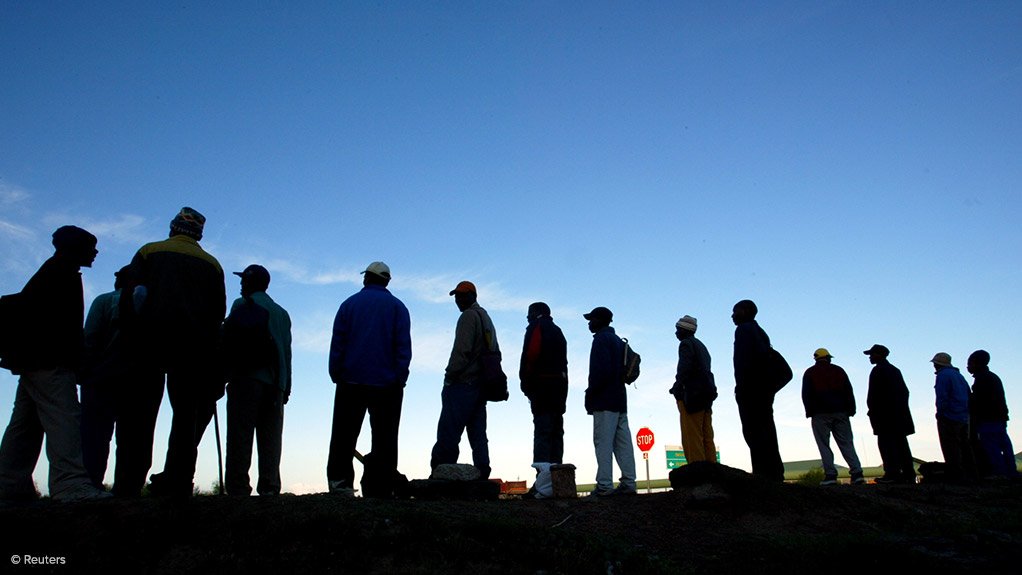South Africa's unemployment rate improved to 26.7% in the fourth quarter of 2017.
This was a one percentage point improvement on the unemployment rate of 27.7% recorded in the third quarter of the year.
However, economists.co.za economist Mike Schussler believes the improvement is only as a result of the holiday season at the end of 2017, when more casual workers are employed.
"The unemployment [rate] has dropped and that's sort of good news. However, this was owing to technical reasons, such as increased casual employment during the festive season at the end of the year, rather than an underlying improvement in the job market," he explained.
On Tuesday, Statistics South Africa's (Stats SA's) Quarterly Labour Force Survey (QLFS) for the fourth quarter showed a decrease of 351 000 in the labour force, with employment and unemployment decreasing by 21 000 and 330 000 respectively.
Stats SA noted, however, that the absorption rate had declined to 43.1% and the labour force participation to 58.8% in the fourth quarter.
A decline in unemployment was observed across all age groups, but was highest among the youth, irrespective of educational level.
Meanwhile, the expanded employment rate, which includes persons who have given up on finding employment, improved to 36.3%, from 36.8% in the third quarter.
Current economic conditions remain subdued, but the growth outlook for this year has improved, Nedbank Group's economic unit commented in response to the release of the QLFS.
It added that while the outlook for the job market remains uncertain, prospects have increased potential.
"The political landscape is improving, while global economic growth and commodity prices are forecast to increase in 2018. This will support business confidence, which should ultimately encourage fixed investment activity and employment creation by the private sector. However, public sector employment growth will be restricted by the need for fiscal consolidation," Nedbank commented.
Schussler noted that while prospects would remain subdued for the short to medium term, improved business and consumer confidence will help the unemployment rate decline further.
He suggested that consideration should be given to offering unemployed persons job training without being paid the full minimum wage while they gain experience.
"The broader issue is to get people into jobs, especially considering that a person's first job is the most difficult to get owing to a lack of experience," he explained.
Of more concrete possibility, however, is South Africa considering implementation of a system where disruptive strikes are mediated before becoming destructive to related industries.
"We need to get these sort of innovative rethinking in place as a show of goodwill in order for the country to move forward," he noted.
EMAIL THIS ARTICLE SAVE THIS ARTICLE ARTICLE ENQUIRY
To subscribe email subscriptions@creamermedia.co.za or click here
To advertise email advertising@creamermedia.co.za or click here











